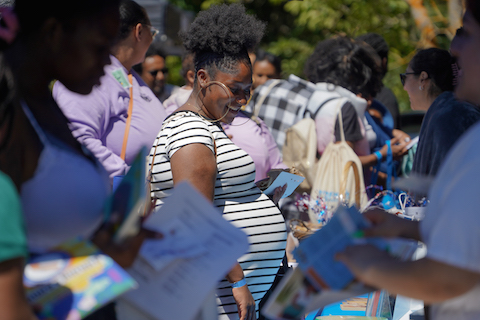
02 Sep Churches Step Up to Support Black Mothers in Contra Costa

Oakland resident Brandi Watson walks around the 13th Annual Contra Costa African American Community Baby Shower receiving information to comfort her worries as she navigates her first pregnancy. The community baby shower was held at Appian Way Seventh Day Adventist Church in El Sobrante on Aug. 24.
Story and photos by Denis Perez-Bravo
Contra Costa County churches have become unlikely but vital allies in the fight against one of California’s most avoidable health crises – preventable maternal deaths. Eighty percent of maternal deaths are preventable.
Through community baby shower programs, Dr. Monique Sims has turned 13 Contra Costa churches into frontline defenders for pregnant Black women as part of her health program, A More Excellent Way.
On Aug. 24, Sims and Appian Way Seventh-day Adventist Church in El Sobrante hosted the 13th Annual Contra Costa County African American Free Community Baby Shower.
- Hundreds of Bay Area families participated in the 13th Annual Contra Costa African American Community Baby Shower resource fair.
The event gave hundreds of pregnant and early postpartum families a multigenerational community, county resources and supplies for newborns.
“Our idea is to support the entire family,” Sims said. “And we have about 30 vendors here.”
The event featured many organizations and programs including Women, Infants and Children, First 5 Contra Costa, Child and Family Services, Man Cave Ministry, Grandmother’s Tea, Black Infant Health, and the Perinatal Equity Initiative.
Black Infant Health Helps Black Moms ‘Give Birth the Way She Wants’
Sim’s MEW program showcases why California has gone with a community-based approach to combat maternal mortality.
In September 2024, the state launched its Strong Start and Beyond initiative, trying to cut maternal deaths in half by the end of 2026.
According to the initiative’s webpage, the state is partnering with local organizations and empowering individuals with information through newsletters and social media campaigns.
California has the lowest maternal death rate in the nation, below the national average, according to California Surgeon General Dr. Diana E. Ramos.
In 2021, California reported 91 maternal deaths, or 9.1 deaths for every 100,000 births. Nationally, the Centers for Disease Control and Prevention reported 904 maternal deaths, or 32.9 deaths for every 100,000 births.
Ramos attributed California’s lower rate, in part, to its efforts to unite the discrete health networks across the state.
“Up until now, everyone’s been… doing their own thing, it’s been fragmented,” Ramos said to CalMatters in 2024. “We’re bringing together all of these efforts, breaking down these silos and really elevating the amazing work that everyone is doing.”
Despite the state’s success, death among pregnant Black women is still on the rise nationally, showing a growing racial gap in pregnancy deaths, the Associated Press reports.
Sims is ahead of the curve, having a proven blueprint to tackling this disparity. In addition to 13 Contra Costa churches she works with, the program also operates in 20 Solano County congregations.
- Dr. Monique Sims speaks during the 13th Annual Contra Costa African American Community Baby Shower in El Sobrante on Aug. 24. Her organization, A More Excellent Way, was in conception as Sims worked with pregnant women in Solano County in 2005. And in 2012, Sims’ dissertation project at UC Berkeley was “Engaging The Faith Community to Improve Breastfeeding Rates of African American Women,” birthing MEW.
- Dr. Monique Sims, left, of the More Excellent Way heath program and Appian Way church members Elder Tanya Clay, center right, and Nichelle St. Helen, right, were recognized by Erika Neal, center left, on behalf of state Sen. Jesse Arreguin.
Step one is educating congregations about the statistics. Next, Sims trains members to become breastfeeding peer counselors. In phase three, churches are adapted to be more baby- and mother-friendly, including setting up lactation rooms. The fourth phase is hosting a baby shower.
“And the last phase is those peer counselors that we train,” Sims said, “we link them to the most vulnerable families that want to help navigating the healthcare system as well as providing breastfeeding information.”
- A woman holds her child at the Contra Costa County African American Free Community Baby Shower.
- Breasts Friends Lactation Support Services founder Brandi Burgess dances during a line dancing portion of the health resource fair at the Appian Way Seventh Day Adventist Church during the 13th Annual Contra Costa African American Community Baby Shower in El Sobrante on Aug. 24
Church member Nichelle St. Helen said she’d been asking Sims for years to bring the baby shower to the Appian Way church, ever since she attended one herself.
This community was everything,” St. Helen said, remembering the shower she attended at the onset of the COVID-19 pandemic.
With her family on the East Coast and no local support system in El Sobrante, St. Helen said she had been feeling isolated and overwhelmed as a mother until she attended MEW’s event.
During the pandemic, national maternal deaths increased, some data pointing to a 100% increase, according to Brown University.
- Nichelle St. Helen holds up her children’s book, “Let’s Tour the Caribbean,” a few copies of which were given away at the baby shower.
A newfound community gave St. Helen the drive to continue with her early education career and go on to publish a children’s book called “Let’s Tour The Caribbean.”
At this year’s baby shower, St. Helen gave a copy of her book to four participants who answered trivia questions correctly.
Participants were also able to get diapers donated by event sponsor John Muir Health as well as groceries and participate in raffles.
- A woman watches over kids in the play area at the Appian Seventh Day Adventist Church during the 13th Annual Contra Costa African American Community Baby Shower in El Sobrante on Aug. 24.
Grandma’s Tea facilitated intergenerational dialogue with elders. Man Cave Ministry touched base with men going into parenthood as it and the Fatherhood Program of Contra Costa taught men about how to support their pregnant partners. Church staff also set up a play area for kids where they taught them lessons on being older siblings aware of infant safety and care.
- Man Cave Ministry and the county fatherhood program were at the community baby shower to help men learn how to prepare for parenthood and support their partners.
Oakland resident Brandi Watson, 30, was pregnant with her first child at the time of the shower; the baby was due less than a week later, on Aug. 30.
With her husband at work, she participated in the baby shower by herself.
She walked among the vendors and talked with other participants.
“The emotional support — that is the biggest thing because there’s a roller coaster of emotion and especially with the economy and everything that is going on,” she said.
California’s programs aimed at pregnancy health have not been immune to federal cuts.
Just a few days before the shower, the Trump administration terminated more than $12 million from the California Personal Responsibility Education Program that works to prevent pregnancy and sexually transmitted diseases in youth.
And healthcare provider Planned Parenthood has closed five clinics in Northern and Central California after federal funding cuts passed as part of the so-called “One Big Beautiful Bill.” And according to CalMatters, only a few Planned Parenthood organizations will continue to receive federal funds and none of them in California.
>>>Experts Warn ‘Big Beautiful Bill’ Could Bring Harm to Health, Climate and Economy<<<
But in Northern California, residents continue to work together to form educational hubs to counteract ignorance brought about by a lack of access to resources.
Watson, a teacher, experienced a loss of community resources after moving up north from Southern California. Although she “grew up around community,” Northern California is a different type of community, she said.
“I am learning and trying to build a network for me and my husband because it’s just us,” Watson said.
She was very happy with all the information she received and is set to implement what she can. And the resources that aren’t helpful to her, she said she will pass on to those that need it.
“I’m building a foundation and leaving a legacy. That is the most important thing for me.”



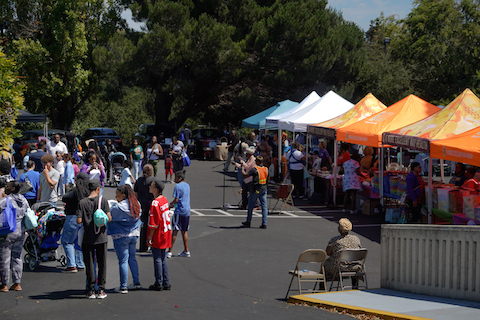
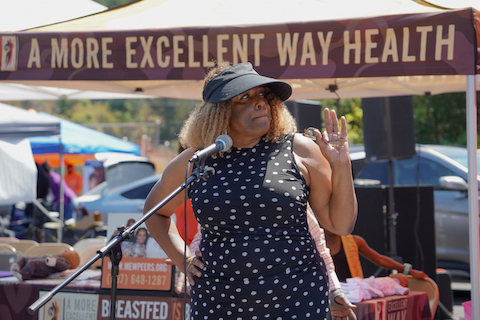
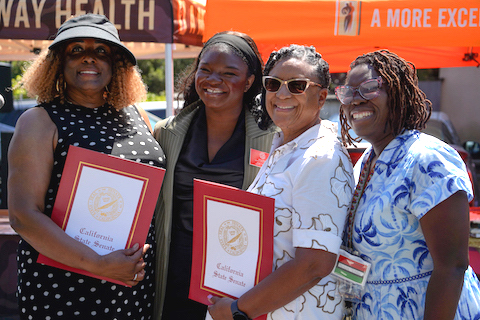

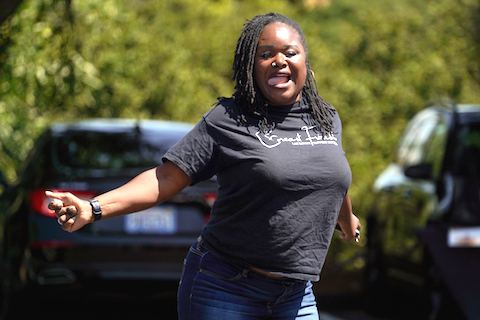
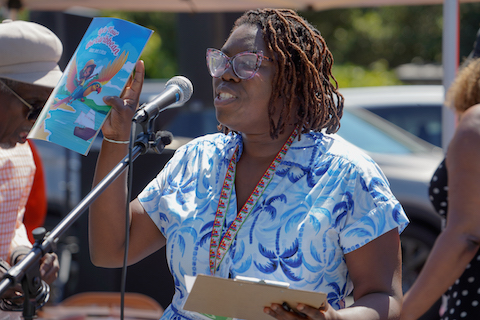
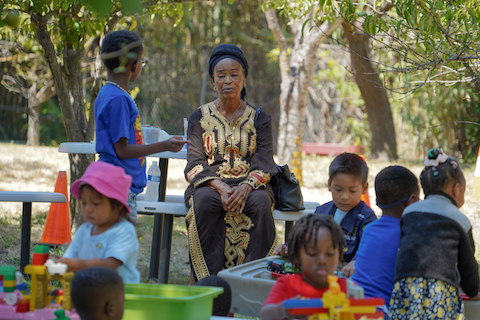

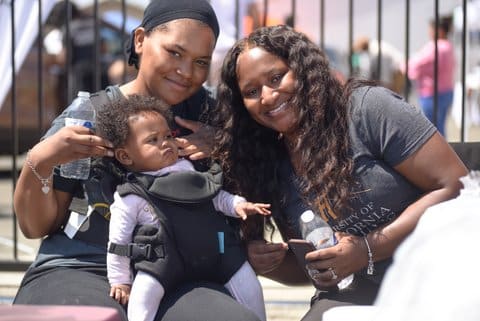
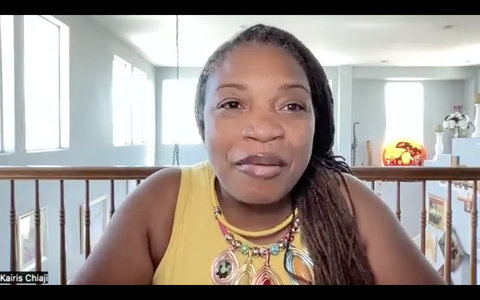

No Comments